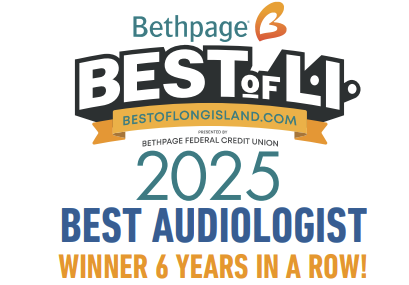
Your body is a lot like an ecosystem. In nature, all of the fish and birds will be affected if something goes wrong with the pond; and all of the animals and plants that rely on the birds will disappear if the birds disappear. The human body, frequently unbeknownst to us, works on very similar methods of interconnection. That’s why something which seems isolated, like hearing loss, can be linked to a large number of other ailments and diseases.
This is, in a sense, proof of the interdependence of your body and it’s resemblance to an ecosystem. Your brain might also be impacted if something affects your hearing. These conditions are known as comorbid, a fancy (and specialized) term that demonstrates a link between two disorders while not necessarily articulating a cause-and-effect connection.
We can discover a lot about our bodies’ ecosystem by understanding ailments that are comorbid with hearing loss.
Diseases Associated With Hearing Loss
So, let’s assume that you’ve been noticing the signs of hearing loss for the past several months. You’ve been having a tough time hearing what people are saying when you go out to eat. The volume of your television is constantly getting louder. And certain sounds sound so distant. When this is the situation, the majority of people will set up an appointment with a hearing specialist (this is the smart thing to do, actually).
Your hearing loss is connected to a number of health issues whether your aware of it or not. Comorbidity with hearing loss has been reported with the following health problems.
- Depression: a whole range of concerns can be the result of social isolation because of hearing loss, many of which relate to your mental health. So it’s not surprising that study after study finds depression and anxiety have really high comorbidity rates with hearing loss.
- Vertigo and falls: your main tool for balance is your inner ear. There are some types of hearing loss that can wreak havoc with your inner ear, resulting in dizziness and vertigo. Any loss of balance can, of course, cause falls, and as you age, falls can become increasingly hazardous.
- Cardiovascular disease: hearing loss and cardiovascular disease aren’t always linked. In other cases, cardiovascular issues can make you more susceptible to hearing loss. That’s because one of the initial signs of cardiovascular disease is trauma to the blood vessels of the inner ear. Your hearing may suffer as a result of the of that trauma.
- Diabetes: similarly, your whole nervous system can be influenced in a negative way by diabetes (specifically in your extremities). the nerves in the ear are particularly likely to be affected. This damage can cause loss of hearing all on its own. But your symptoms can be multiplied because diabetes related nerve damage can make you more susceptible to hearing loss caused by other factors.
- Dementia: a higher chance of dementia has been connected to hearing loss, although the root cause of that relationship is unclear. Research shows that wearing a hearing aid can help slow down cognitive decline and lower a lot of these dementia concerns.
Is There Anything That Can be Done?
When you add all of those connected health conditions on top of each other, it can seem a little scary. But one thing should be kept in mind: managing your hearing loss can have tremendous positive impacts. Scientists and researchers know that if hearing loss is treated, the risk of dementia significantly lowers although they don’t really understand exactly why dementia and hearing loss show up together in the first place.
So regardless of what your comorbid condition might be, the best way to go is to have your hearing checked.
Part of an Ecosystem
This is why health care specialists are reconsidering the importance of how to treat hearing loss. Instead of being a rather limited and specific area of concern, your ears are viewed as intimately connected to your general wellbeing. We’re starting to consider the body as an interrelated environment in other words. Hearing loss isn’t always an isolated scenario. So it’s more significant than ever that we keep your eye on the entirety, not to the proverbial pond or the birds in isolation, but to your health as a whole.







